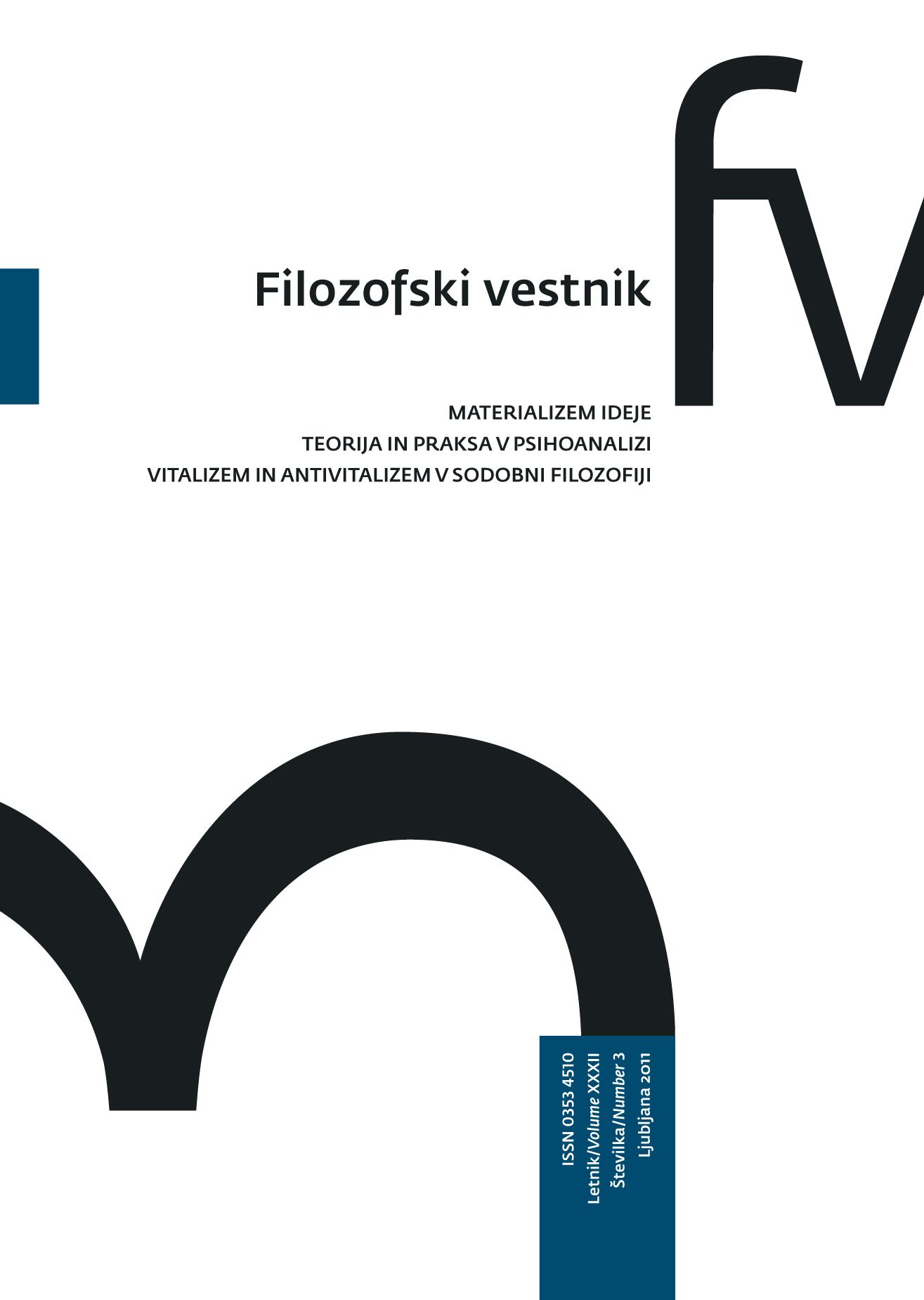Le šibka narava: substanca in subjekt v Heglovi filozofiji
Ključne besede:
Hegel, narava, šibkost, substanca, subjekt, idealizem, materializemPovzetek
Heglova Naturphilosophie je daleč najbolj zapostavljena dimenzija njegovega celotnega filozofskega aparata. A njegove podcenjene realnofilozofske refleksije narave niso omejene le na drugo knjigo (Filozofija narave) Enciklopedije filozofskih znanosti, temveč se znova in znova pojavljajo skozi celoten razpon njegovega opusa, vse od bernskega »Najzgodnejšega programa sistema nemškega idealizma« iz leta 1796 do berlinskih Predavanj o logiki iz leta 1831. V članku predlagam očitno heterodoksno materialistično in realistično ponovno branje heglovske filozofije, ki temelji na pripoznanju in izpostavitvi ključne vloge Naturphilosophie v njej. Osredotočam se predvsem na Heglov pojem »nemoči« ali »šibkosti« (Ohnmacht) narave, v kateri prepoznam temeljni, četudi kontingentni materialni pogoj možnosti geneze duha in vsega drugega, kar nosi s sabo ta imanentni vznik iz narave. V zaključku pokažem na implikacije te rekonstrukcije heglovstva za Marxovo (in druge) materialistične kritike heglovskega »idealizma«.Prenosi
Podatki o prenosih še niso na voljo.
Prenosi
Objavljeno
2016-02-06
Kako citirati
Johnston, A. (2016). Le šibka narava: substanca in subjekt v Heglovi filozofiji. Filozofski Vestnik, 32(3). Pridobljeno od https://ojs.zrc-sazu.si/filozofski-vestnik/article/view/4175
Številka
Rubrike
Vitalizem in antivitalizem v sodobni filozofiji
Licenca
Avtorji jamčijo, da je delo njihova avtorska stvaritev, da v njem niso kršene avtorske pravice tretjih oseb ali kake druge pravice. V primeru zahtevkov tretjih oseb se avtorji zavezujejo, da bodo varovali interese založnika ter da bodo povrnili morebitno škodo.
Podrobneje v rubriki: Prispevki





